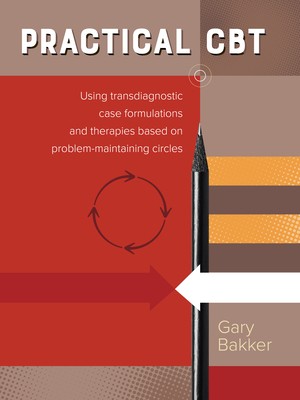
- We will send in 10–14 business days.
- Author: Gary Bakker
- Publisher: Australian Academic Press
- ISBN-10: 1925644448
- ISBN-13: 9781925644449
- Format: 21 x 27.9 x 1.7 cm, minkšti viršeliai
- Language: English
- SAVE -10% with code: EXTRA
Practical Cbt: Using Transdiagnostic Case Formulations and Therapies Based on Problem-Maintaining Circles (e-book) (used book) | bookbook.eu
Reviews
Description
The next generation of evidence-based CBT practice is here.
In 2008, clinical psychologist Gary Bakker first introduced Problem-Maintaining Circle Theory to the teaching and clinical application of cognitive behaviour therapy. PMC Theory bridges the gap between psychotherapy process research, and the demands of practical real-world therapy. The result is a new non-medicalising conception of clinical psychological problems. PMC Theory allows the development of reliable CBT-based assessment, case formulation, and therapy selection. This ensures more effective practical interventions that are easily understandable, and complementary to the allied fields of medicine, psychiatry, and counselling. The theory is conceptually consistent, clinically-focused, and uses the huge evidence base available in the CBT literature. Since the first release of his ground-breaking clinician manual Practical CBT, Gary's work has been in constant demand. This new edition further develops the theoretical basis of the PMC model by describing a grand unified theory . It also extends the recommended assessment questions, taxonomy of PMCs, and homework activities to inlude:- depression
- anxiety
- anger
- health anxiety
- eating disorders
- relationship problems
- chronic pain
- obsessive-compulsive disorder
- substance abuse/dependence
- sexual problems. This is the ultimate 'how-to' manual for CBT therapists, drawing on 40 years of clinical practice and research. Learn how best to communicate the CBT approach to clients and get them to do their homework effectively. Select and apply evidence-based CBT therapies. The manual includes 72 Homework sheets, including verbatim scripts to help ensure clients get the best out of therapy and a downloadable PDF booklet of 33 client handouts.
EXTRA 10 % discount with code: EXTRA
The promotion ends in 21d.15:02:40
The discount code is valid when purchasing from 10 €. Discounts do not stack.
- Author: Gary Bakker
- Publisher: Australian Academic Press
- ISBN-10: 1925644448
- ISBN-13: 9781925644449
- Format: 21 x 27.9 x 1.7 cm, minkšti viršeliai
- Language: English English
The next generation of evidence-based CBT practice is here.
In 2008, clinical psychologist Gary Bakker first introduced Problem-Maintaining Circle Theory to the teaching and clinical application of cognitive behaviour therapy. PMC Theory bridges the gap between psychotherapy process research, and the demands of practical real-world therapy. The result is a new non-medicalising conception of clinical psychological problems. PMC Theory allows the development of reliable CBT-based assessment, case formulation, and therapy selection. This ensures more effective practical interventions that are easily understandable, and complementary to the allied fields of medicine, psychiatry, and counselling. The theory is conceptually consistent, clinically-focused, and uses the huge evidence base available in the CBT literature. Since the first release of his ground-breaking clinician manual Practical CBT, Gary's work has been in constant demand. This new edition further develops the theoretical basis of the PMC model by describing a grand unified theory . It also extends the recommended assessment questions, taxonomy of PMCs, and homework activities to inlude:- depression
- anxiety
- anger
- health anxiety
- eating disorders
- relationship problems
- chronic pain
- obsessive-compulsive disorder
- substance abuse/dependence
- sexual problems. This is the ultimate 'how-to' manual for CBT therapists, drawing on 40 years of clinical practice and research. Learn how best to communicate the CBT approach to clients and get them to do their homework effectively. Select and apply evidence-based CBT therapies. The manual includes 72 Homework sheets, including verbatim scripts to help ensure clients get the best out of therapy and a downloadable PDF booklet of 33 client handouts.


Reviews